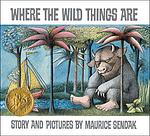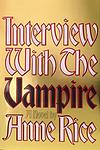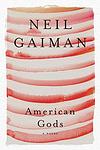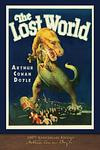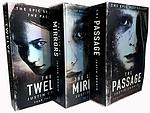The Greatest "Speculative Fiction, Novela" Books of All Time
Click to learn how this list is calculated.
This list represents a comprehensive and trusted collection of the greatest books. Developed through a specialized algorithm, it brings together 300 'best of' book lists to form a definitive guide to the world's most acclaimed books. For those interested in how these books are chosen, additional details can be found on the rankings page.
Genres
Speculative fiction is an umbrella genre encompassing narrative fiction with supernatural or futuristic elements. This includes genres such as science fiction, fantasy, horror, supernatural fiction, superhero fiction, utopian and dystopian fiction, apocalyptic and post-apocalyptic fiction, and alternate history. The unifying factor of speculative fiction is its departure from the narrative constraints of reality, exploring imaginative and often profound questions that challenge our understanding of the world and our place within it. These stories often delve into themes like the human condition, social commentary, and the exploration of philosophical and ethical dilemmas through the lens of the fantastical or the yet-to-be-possible. By pushing the boundaries of the known, speculative fiction invites readers to consider the myriad possibilities of existence and the potential consequences of our actions in worlds that are, at once, vastly different from and eerily similar to our own.
Novela is a category of books that typically refers to a type of fiction that is longer than a short story but shorter than a novel. Novelas often focus on character development and explore complex themes and issues. They may also incorporate elements of romance, mystery, or suspense. Novelas are often written in a straightforward, accessible style that makes them popular with readers of all ages and backgrounds. Overall, the novela genre offers a diverse range of stories that are engaging, thought-provoking, and entertaining.
Countries
Date Range
Reading Statistics
Click the button below to see how many of these books you've read!
Download
If you're interested in downloading this list as a CSV file for use in a spreadsheet application, you can easily do so by clicking the button below. Please note that to ensure a manageable file size and faster download, the CSV will include details for only the first 500 books.
Download-
1. Nineteen Eighty Four by George Orwell
Set in a dystopian future, the novel presents a society under the total control of a totalitarian regime, led by the omnipresent Big Brother. The protagonist, a low-ranking member of 'the Party', begins to question the regime and falls in love with a woman, an act of rebellion in a world where independent thought, dissent, and love are prohibited. The novel explores themes of surveillance, censorship, and the manipulation of truth.
-
2. Frankenstein by Mary Shelley
This classic novel tells the story of a young scientist who creates a grotesque but sentient creature in an unorthodox scientific experiment. The scientist, horrified by his creation, abandons it, leading the creature to seek revenge. The novel explores themes of ambition, responsibility, guilt, and the potential consequences of playing God.
-
3. Dracula by Bram Stoker
This classic horror novel tells the story of Count Dracula's attempt to move from Transylvania to England so that he may find new blood and spread the undead curse, and of the battle between Dracula and a small group of people led by Professor Abraham Van Helsing. The narrative is composed of journal entries, letters, and telegrams written by the novel's protagonists, providing different perspectives on the gruesome events unfolding. The book touches on themes of sexuality, gender roles, and the clash of modern science with traditional superstition.
-
4. Fictions by Jorge Luis Borges
"Collected Fiction" is a compilation of stories by a renowned author that takes readers on a journey through a world of philosophical paradoxes, intellectual humor, and fantastical realities. The book features a range of narratives, from complex, multi-layered tales of labyrinths and detective investigations, to metaphysical explorations of infinity and the nature of identity. It offers an immersive and thought-provoking reading experience, blurring the boundaries between reality and fiction, past and present, and the self and the universe.
-
5. Fahrenheit 451 by Ray Bradbury
In a dystopian future where books are banned and burned by the government to prevent dissenting ideas, a fireman named Guy Montag, whose job is to burn books, begins to question the society he serves. After a series of events, including meeting a free-thinking teenager and witnessing a woman choosing to die with her books, Montag begins to secretly collect and read books, leading to his eventual rebellion against the oppressive regime. The narrative serves as a critique of censorship, conformity, and the dangers of an illiterate society.
-
6. War of the Worlds by H. G. Wells
This classic science fiction novel tells the story of a Martian invasion of Earth, as experienced by an unnamed protagonist and his brother. The Martians, who are technologically far superior to humans, cause widespread devastation with their heat-ray weapons and towering tripods. Despite humanity's best efforts to resist, they seem unstoppable. The novel is a commentary on British imperialism and explores themes of human survival and evolution.
-
7. Where the Wild Things Are by Maurice Sendak
A young boy named Max, dressed in his wolf costume, wreaks such havoc through his household that he is sent to bed without his supper. In his room, a mysterious, wild forest and sea grows out of his imagination, and Max sails to the land of the Wild Things. The Wild Things are fearsome-looking monsters, but Max conquers them by “staring into their yellow eyes without blinking once”, and he is made the king of all wild things. However, he soon finds himself lonely and homesick and returns home to his bedroom where he finds his supper waiting for him, still hot.
-
8. Flowers for Algernon by Daniel Keyes
The book is a poignant science fiction narrative that follows the life of Charlie Gordon, a man with an IQ of 68, who undergoes an experimental surgical procedure intended to increase his intelligence. The story is told through Charlie's progress reports, which initially showcase his limited comprehension and writing ability. As the treatment takes effect, Charlie's intelligence surpasses that of the average person, leading to a dramatic increase in his understanding of the world, relationships, and his own past. However, the transformation is not without its pitfalls, as Charlie grapples with the emotional and social implications of his newfound abilities, and the impermanence of the experiment's success becomes a haunting reality. The novel explores themes of intellect, human dignity, and the ethics of scientific experimentation.
-
9. Interview with the Vampire by Anne Rice
The novel is a dark and atmospheric tale of a centuries-old vampire, Louis, who shares his life story with a young reporter. He recounts his transformation into a vampire by the charismatic and ruthless Lestat, their complex relationship, and their encounters with other supernatural beings. The narrative explores themes of immortality, loss, identity, and the human desire for love and companionship. The book is known for its rich detail and its philosophical and historical depth.
-
10. The Island of Doctor Moreau by H. G. Wells
A shipwrecked man finds himself on an isolated island run by a mad scientist who has been conducting disturbing experiments, transforming animals into human-like beings through vivisection. The man must navigate this horrifying new reality while trying to maintain his own humanity and sanity, in a world where the line between beast and man is blurred. The narrative is a chilling exploration of the nature of humanity, the ethics of science, and the dangers of playing God.
-
11. The Hunger Games by Suzanne Collins
Set in a dystopian future, the novel revolves around a teenager named Katniss Everdeen, who lives in a post-apocalyptic nation where the government, in order to maintain control, forces each of its twelve districts to send a boy and girl to participate in a televised annual event. This event, known as the Hunger Games, is a fight to the death. When Katniss's younger sister is selected to participate, Katniss volunteers to take her place. The book follows her struggle for survival in the cruel game, against the backdrop of a brewing rebellion against the oppressive regime.
-
12. Carrie by Stephen King
A young high school girl with telekinetic abilities is mercilessly bullied and isolated by her classmates and religious fanatic mother. After a particularly humiliating incident at her senior prom, she uses her powers in a fit of rage and despair, leading to a terrifying and catastrophic event that devastates her small town.
-
13. The Witches by Roald Dahl
This children's dark fantasy novel tells the story of a young British boy and his Norwegian grandmother as they battle against England's child-hating witches. After losing his parents, the boy lives with his grandmother who educates him about the evil witches that appear ordinary but have a deep hatred for children. The boy accidentally stumbles upon the witches' convention and gets turned into a mouse, but with his grandmother's help, he manages to foil their plan to turn all the children into mice.
-
14. Jurassic Park by Michael Crichton
A billionaire entrepreneur, with the help of genetic scientists, creates a wildlife park on a secluded island filled with genetically engineered dinosaurs. When a small group of experts are invited to the park for a preview, things go awry as the security systems fail and the dinosaurs break free. The group must survive and escape the island while dealing with the dangerous prehistoric creatures and the moral implications of tampering with nature.
-
15. American Gods by Neil Gaiman
A recently released convict discovers that his wife and best friend died in a car accident. He then meets a mysterious stranger who hires him as a bodyguard. As they journey across America, it is revealed that the stranger is an old god, traveling to rally his fellow forgotten deities to wage a war against the new American gods born from society's modern obsessions with media, technology, drugs, celebrity, and more. The story blends elements of fantasy, mythology, and Americana to explore themes of faith, belief, and the nature of American identity.
-
16. The Adventures Of Pinocchio by Carlo Collodi
"The Adventures of Pinocchio" is a classic children's novel that follows the mischievous adventures of a wooden puppet named Pinocchio. As he strives to become a real boy, Pinocchio encounters a series of trials and temptations, learning valuable life lessons along the way. From encounters with talking animals to being swallowed by a giant fish, Pinocchio's journey is filled with humor, excitement, and moral dilemmas. With themes of honesty, bravery, and the consequences of one's actions, this timeless tale captivates readers of all ages.
-
17. The Martian by Andy Weir
A gripping tale of survival and resilience, this book follows the story of an astronaut left stranded on Mars by his crew who believed him dead after a fierce storm. With limited supplies, he must utilize his ingenuity, wit, and spirit to survive and signal to Earth that he is alive. The narrative is a thrilling testament to human willpower and the relentless fight for survival against all odds.
-
18. The Lost World by Arthur Conan Doyle
"The Lost World" is an adventure novel that follows a group of explorers as they embark on a perilous journey to a remote plateau in South America, where prehistoric creatures still roam. Led by an eccentric professor, the team encounters dangerous dinosaurs, hostile tribes, and treacherous terrain, testing their courage and resilience. As they strive to survive and document their discoveries, the explorers face thrilling encounters and unexpected challenges that push them to their limits. This thrilling tale of exploration and survival is filled with suspense, action, and a sense of wonder as the characters navigate the mysteries of this lost world.
-
19. Dune Messiah by Frank Herbert
"Dune Messiah" is a science fiction novel set in a distant future where interstellar travel and political intrigue dominate the universe. The story follows the aftermath of Paul Atreides' rise to power as the Emperor of the Known Universe and the challenges he faces in maintaining control over his empire. As Paul's prescient abilities become more powerful, he must navigate complex alliances, religious fanaticism, and his own inner demons, all while facing the threat of rebellion and assassination. This thought-provoking sequel delves into themes of power, religion, and the consequences of absolute rule.
-
20. Air by Geoff Ryman
"Air" by Geoff Ryman is a thought-provoking science fiction novel set in a near-future world where a mysterious substance called "Air" has the power to connect people's minds and transform society. The story follows Mae, a young woman living in a small village in the fictional country of Karzistan, as she becomes a central figure in the global revolution sparked by the discovery of Air. As the world rapidly changes and traditional power structures are challenged, Mae must navigate the complexities of love, politics, and personal identity in a world where the boundaries between reality and virtuality blur.
-
21. The Passage by Justin Cronin
"The Passage" is a gripping post-apocalyptic novel that follows the journey of a young girl named Amy, who holds the key to humanity's survival. Set in a world ravaged by a government experiment gone wrong, the story explores themes of love, sacrifice, and the fight for redemption. As Amy grows older, she embarks on a perilous quest to find her purpose and confront the sinister beings known as Virals, while a group of survivors battles against the darkness that threatens to consume them all.
Reading Statistics
Click the button below to see how many of these books you've read!
Download
If you're interested in downloading this list as a CSV file for use in a spreadsheet application, you can easily do so by clicking the button below. Please note that to ensure a manageable file size and faster download, the CSV will include details for only the first 500 books.
Download





